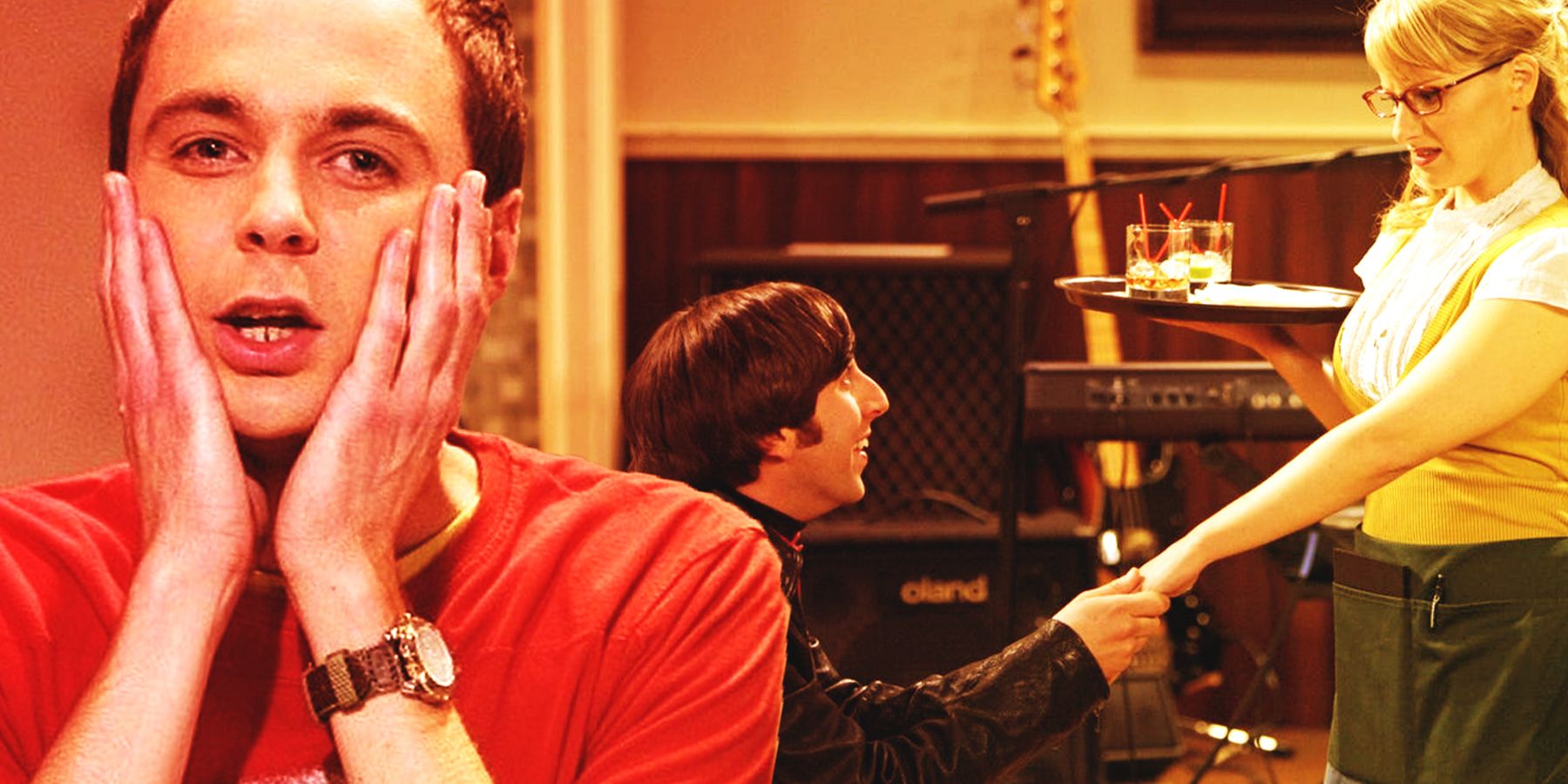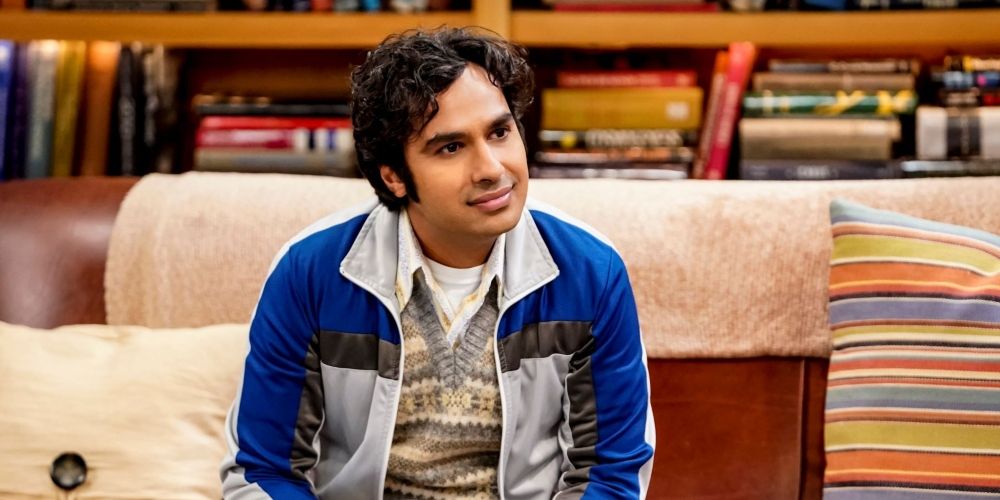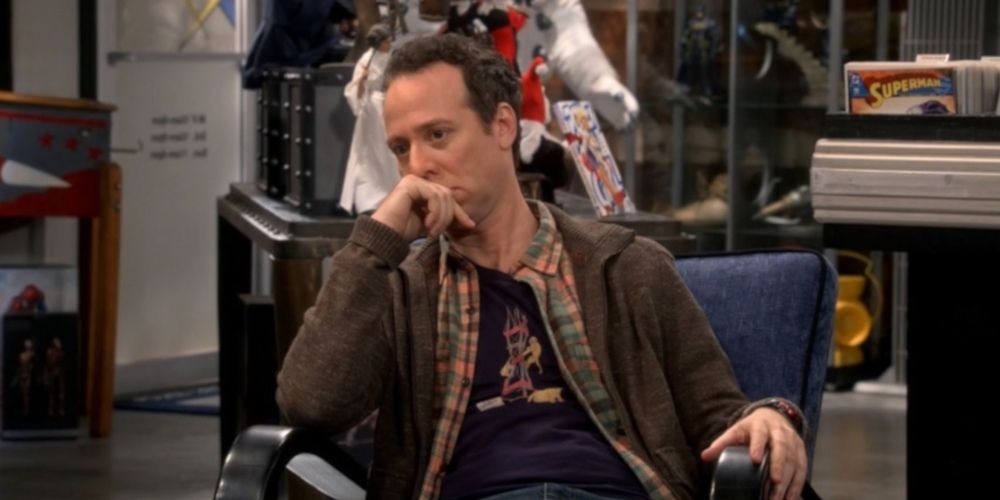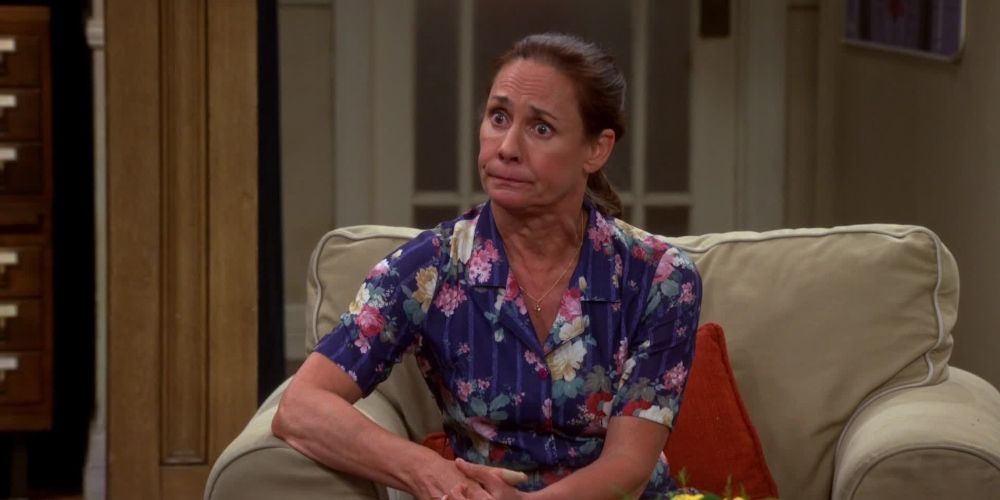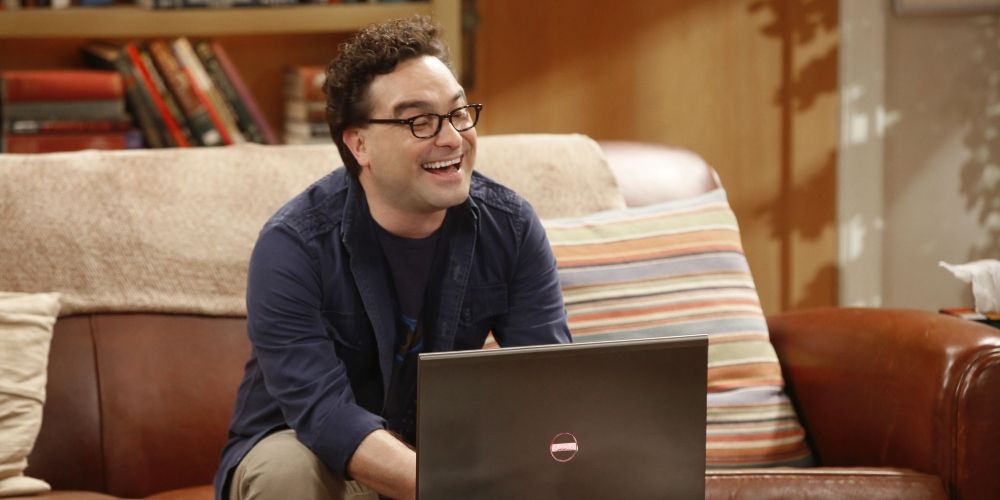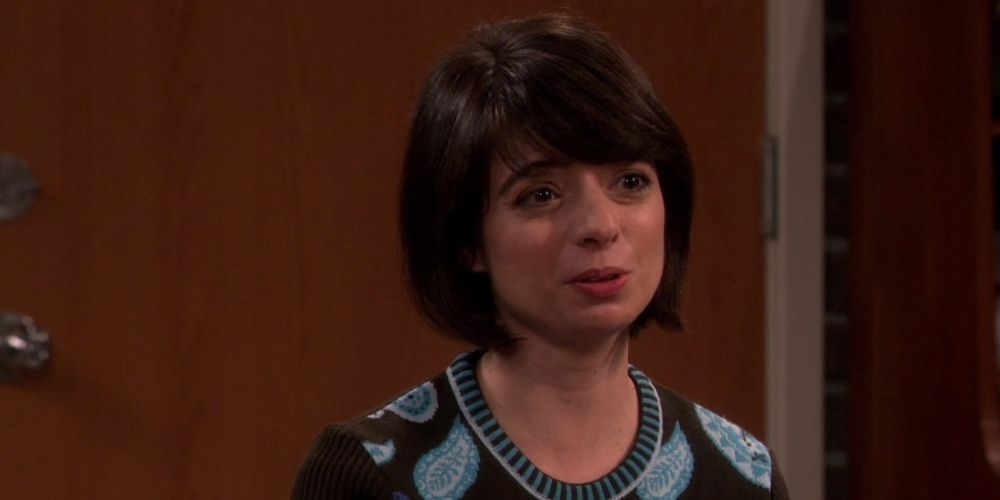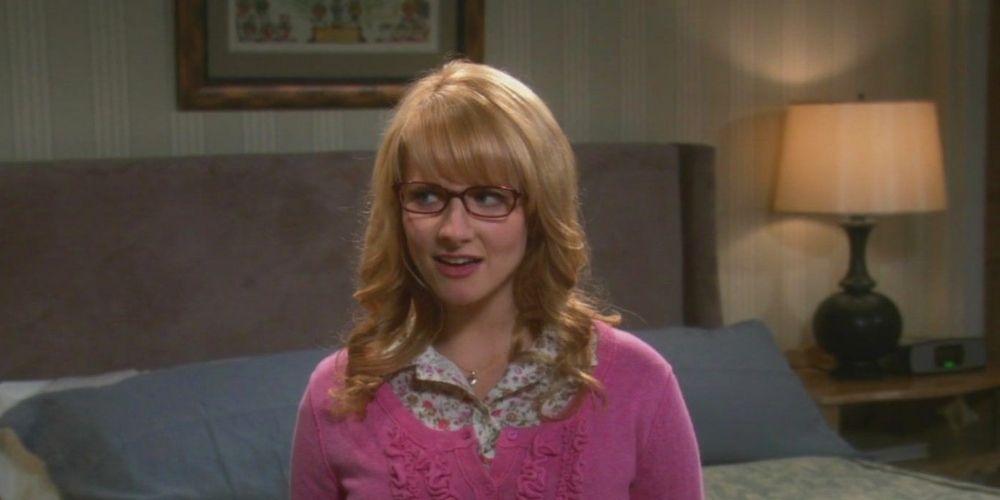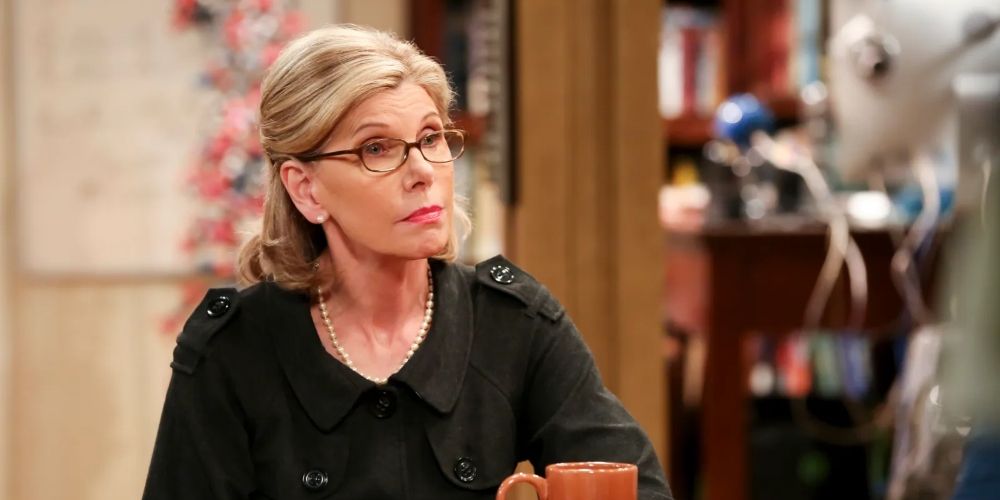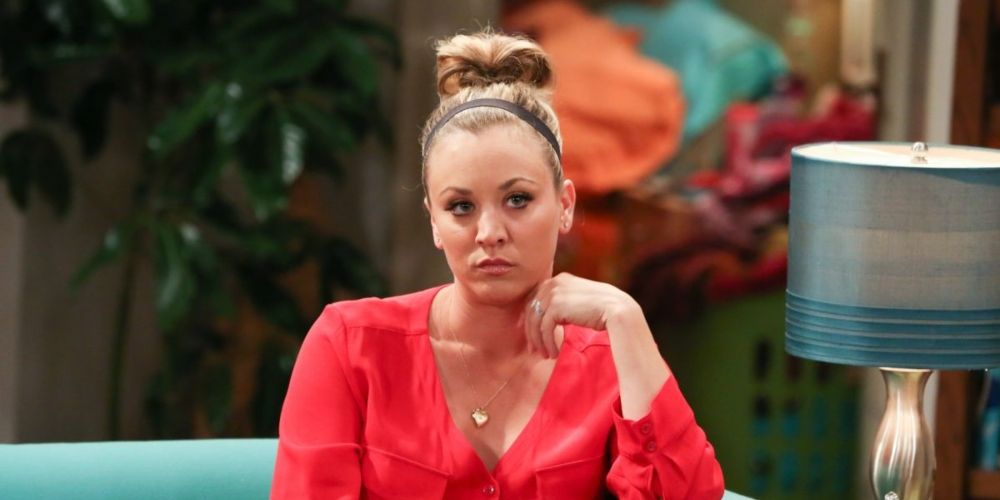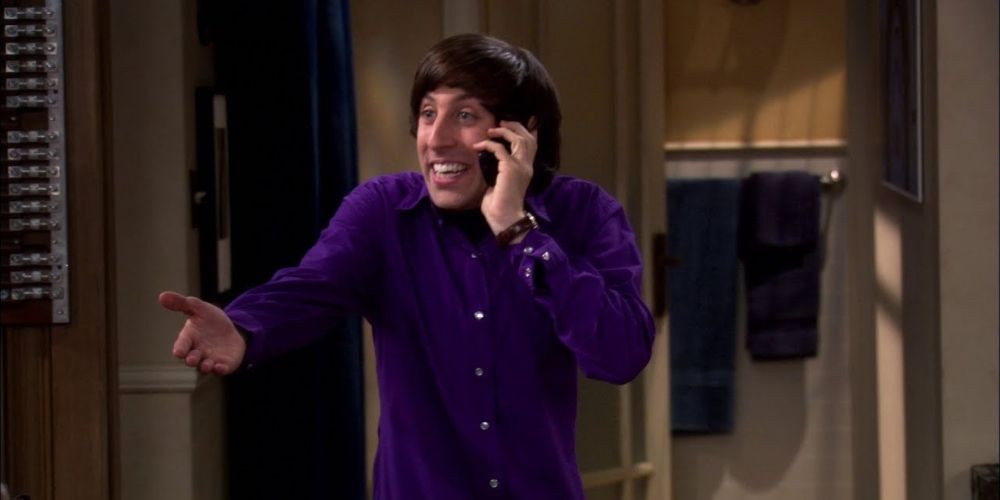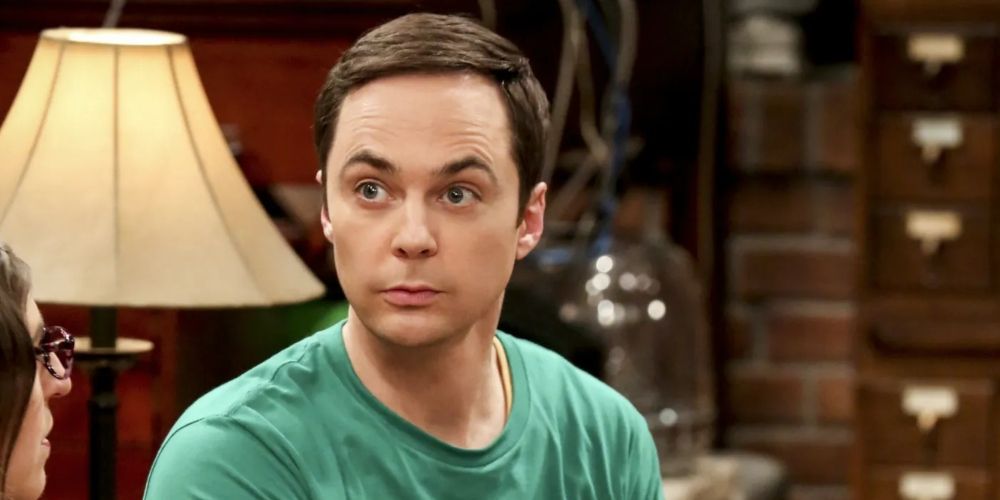The Big Bang Theory ran for twelve seasons. In that time, its characters underwent all sorts of development, exploration, and shifting characterization. By the end of Big Bang, its main characters were wholly different, and even secondary and minor characters had often undergone development.
This wasn't always for the best, however. In many cases, these changes to characterization resulted in declining popularity. Although many of the characters remained popular and even iconic, some fans had grown tired of them after negative development or questionable storylines.
10 Raj Koothrappali Settled Into One Repetitive Storyline
Of the original four (Leonard, Sheldon, Raj, and Howard), Raj Koothrappali began the show as one of the most sympathetic characters. He was a well-intentioned and funny astronomer with social anxiety and selective mutism but who was also charismatic and successful.
However, Raj's storylines all revolved around his poor love life. Despite being able to start relationships, Raj typically found ways to ruin them, leading to episodes about his loneliness. Although Raj's storylines became more varied in The Big Bang Theory's last seasons, many fans were tired of the character by then.
9 Stuart Bloom Underwent A Total Character Change
Initially introduced as a secondary character, Stuart's initial characterization was as the self-aware owner of the comic book shop. Witty, artistic, and self-deprecating, he was able to legitimately charm Penny and was compared positively to Leonard, while still being far from perfect.
As Stuart got more focus, his character changed. He became permanently unlucky and socially repellent and his love life disappeared. Although some fans appreciated this new version of the character, many were disappointed that he'd been reduced to more of a caricature.
8 Mary Cooper's Favoritism Became Clearer
A risk with running two shows with characters in common alongside another is that one is able to influence opinions about the other. Mary Cooper was initially a somewhat popular character for her humor, her relationship with Sheldon, and her well-intentioned rudeness.
Nonetheless, her casual bigotry hurt her character, as did the implications that she favored Sheldon over her other children. The first two seasons of Young Sheldon ran alongside the last two of The Big Bang Theory. To many fans, it confirmed Mary's favoritism at the expense of her other two children and made her a much less sympathetic character.
7 Leonard Hofstadter's Flaws Grew
Leonard Hofstadter started The Big Bang Theory as a protagonist. The relative everyman of his group, he was more socially conscious than his friends and drove many early storylines. His feelings for Penny drove one of The Big Bang's first long story arcs.
Leonard was always less popular than some other main characters, particularly Sheldon, but nonetheless, he had fans. Rather than any sudden choice or development making him less popular, Leonard's character instead slowly accumulated flaws. With less positive development than other characters to balance them out, Leonard ended Big Bang far more snide and whiny than he began.
6 Lucy's One Major Trait Was Barely Explored
Lucy was one of Raj's many love interests over the course of Big Bang, notable for having extreme social anxiety. It colored most of her interactions with Raj and other characters and led to her fleeing from several of her dates with Raj.
Many fans were open to the idea of social anxiety disorder being explored, but instead The Big Bang Theory often simply used it as a punchline and a catalyst for storylines. As such, Lucy lost the interest of many fans, especially when she returned and Raj ruined things again in the seventh season.
5 Bernadette Rostenkowski Became Meaner Over Time
Initially, Bernadette's big comedic gimmick was that she didn't understand jokes. The writers seemed to realize that this was a poor fit for a sitcom, particularly for a character paired with Howard, and overhauled her character. After a time, she seemed incredibly sweet but could be manipulative and even vicious.
These were by no means Bernadette's only traits, but Bernadette yelling at other characters became a routine gag. When Bernadette's husband became the focus of her apparent rage and several episodes saw Bernadette face this problem but do nothing about it, some fans lost interest in Bernadette's stories.
4 Beverly Hofstadter Wore Thin
Initially, there were two main facets to Beverly Hofstadter, Leonard's mother. She was more or less a female version of Sheldon Cooper and a poor parent to Leonard. She was emotionally callous and tended to treat her children like test subjects.
While many secondary characters showed more facets of their personality or had their characters explored, Beverly never did. Instead, she retained her two major traits until many people grew tired of them, and just saw her as unpleasant.
3 Penny Teller Became More Controversial Over Time
When Big Bang first aired, Penny was one of the most popular characters, second only to juggernaut Sheldon Cooper. Full of common sense and very socially capable, she served as a foil to the main characters. She became well-liked for her humor and having some of Big Bang's most emotionally-affecting moments.
The other characters became more socially capable over time, though, changing Penny's role on the show. Furthermore, many questioned the plotlines involving her relationship with and marriage to Leonard Hofstadter, feeling that the two weren't compatible. While Penny's popularity dropped some, she remained one of Big Bang's favorite characters.
2 Howard Wolowitz's Development Was Not Enough For Some People
Of all the main cast of The Big Bang Theory, Howard Wolowitz had the most character development. He went from an overconfident, lecherous, callous joker to a man far ahead in his career, far more mellow, and a much better husband, father, and friend than many of his fellows.
For some, this wasn't enough. In early seasons, Howard's quick wit and funny jokes were enough to have people overlook his shortcomings. As societal perceptions on some of his behavior changed, many came to see Howard in a harsher light. Even late in the series, he continued to make racist jokes. For many fans, there was no way to salvage this character.
1 Sheldon Cooper Split Opinions Drastically
Sheldon Cooper is the most recognizable, unique character from The Big Bang Theory, and a pop culture icon. It's no surprise that, of all characters, he was the one to receive his own spin-off in Young Sheldon. In Big Bang's first seasons, his unique characterization and strange behavior helped fans agree that he was the funniest person on the show.
As time wore on, Sheldon's selfishness, disregard for his friends, and obnoxious behavior became too much. In addition, many began to see him as a poor depiction of Autism Spectrum Disorder or Obsessive Compulsive Disorder, particularly as awareness of neurodiversity increased. As such, Sheldon ended the series as one of The Big Bang Theory's most controversial characters.

